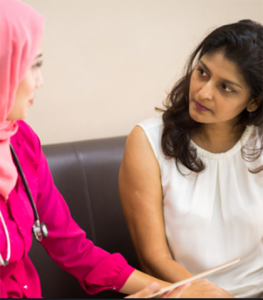Ethnic and language data to be collected from COVID vaccine recipients
People getting a COVID-19 vaccine will be asked about their language and birthplace under a federal government plan to make sure there is vaccine uptake across diverse communities.
The same information has already been collected nationally on positive COVID-19 diagnoses since late 2020.
 A federal Department of Health statement says the decision to collect the data was triggered by requests from community groups and health experts.
A federal Department of Health statement says the decision to collect the data was triggered by requests from community groups and health experts.
They are hoping the data will help identify areas where the government needs to channel culturally-appropriate information about the vaccine.
“In 2020, the Department of Health established the Culturally and Linguistically Diverse Communities COVID-19 Health Advisory Group, which includes leaders from culturally, ethnically and linguistically diverse communities and their representative organisations, health experts and medical and public health practitioners,” the statement said.
“The purpose of the group is to provide Health with advice on the experience of culturally, ethnically and linguistically diverse people and communities in relation to the COVID-19 pandemic.”
The Department said it would seek guidance from the Culturally and Linguistically Diverse Communities COVID-19 Health Advisory Group on whether or not it should make the data publicly available in an appropriate and sensitive manner.
Overseas studies have shown a disparity in vaccine uptake between different ethnic groups.
In December, the UK’s Royal Society for Public Health released a poll showing that while 76 per cent of people would take a COVID-19 vaccine, only 57 per cent of non-white respondents said they would too.
However, another 35 per cent said they were likely to change their minds and take the vaccine if their doctor encouraged them to.
The Federation of Ethnic Communities Councils of Australia welcomed the move, saying it’s an “excellent decision” and one the body encouraged the government to do.
“What we’re interested in is trends in the communities in terms of their uptake of vaccination,” a FECCA spokesperson said.
“So what we’re wanting to find is whether particular communities in specific cultural, language and religious backgrounds are vaccinating at a particular rate.
“If it’s less than the average member of the community, then we really want to understand why it is, and then target a communications campaign so that they can make the best possible decisions for themselves,” the spokesperson said.












